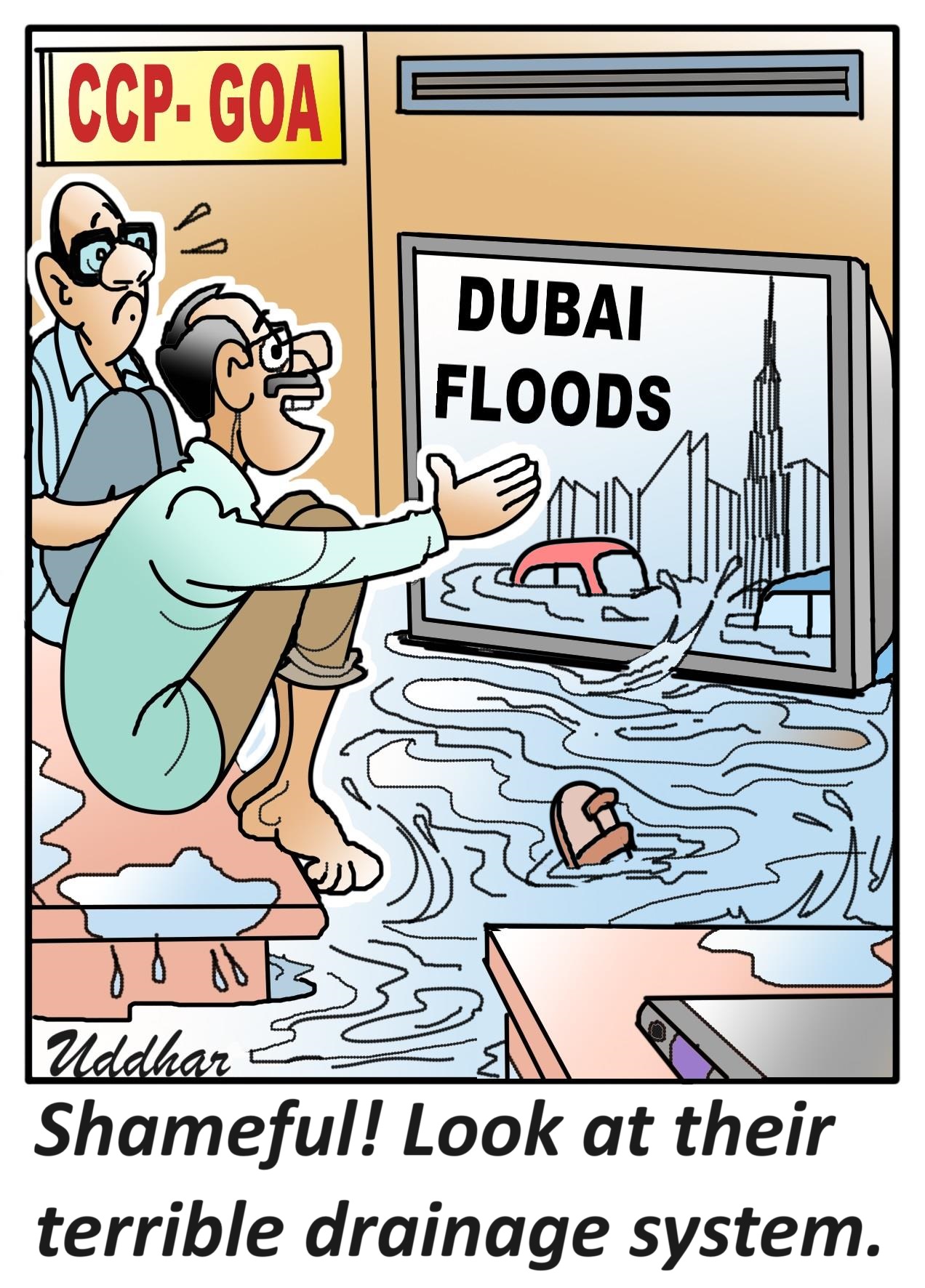When walking in Mumbai near Santa Cruz, many things come to my mind about how the city could be more attractive and friendly to residents and tourists. Nevertheless, having in mind its extension, I immediately desist to elaborate more on it, asking myself who will make the improvements for a welcoming city.
Even then, I find some simple steps, not costly, that could be very effective, since:
First, there is a dedicated entity in the city’s Governing body focused on thinking, promoting ideas and open discussion with different parties interested. This entity must follow the implementation, once decisions are made.
Then, in each of the wards within the city and its suburbs, there is a demand of responsibilities to local bodies for the execution of decisions in their areas; and to maintain, and care for their functionality and cleanness, all this under the impulse of the “dedicated” body.
Some aspects to consider in order to improve quality of life:
a) Clean city of scraps and dead machines: Very near to my place, there is a Police Station. Its spacious building has a backyard space for cars and Jeeps. The immediate thing I notice: on the road around, very near to P.S., there are some Police Jeeps and cars, old, dusty, ready to take to the junkyard. For months they are there, occupying the noble space. The same scenario repeats all over the city, with privately owned cars, which will never move again, covering hundreds of spots. And in such spots, garbage tends to accumulate in a short time. This happens in Mumbai as in other cities in our country.
Why the Police do not collect all their “abandoned” cars to sell them by weight? It would be effective to incentivise the citizens to call the police, in presence of abandoned cars. Police could take them to the park; inform the owner to recover, after paying the parking and the fine, if any. This way, the residents can find more parking spots available near them.
b) Car parking in the city: There could be designated spots to park a car on every public road/street in the city. Where there are many cars, the municipality could allow the ‘paying’ parking in the underground of the buildings to come. This would raise a park business, and prepare the city for the future.
c) Betterment works in the city: When carried out without any limits of time, the dragging of works makes the traffic unbearable. There must be a fixed lapse of time; otherwise, the agency carrying it out should pay a penalty.
d) Make the city pleasant for pedestrians: The sidewalks along the streets and roads need a redesign to reduce the irregularities; fill the holes, etc. For a permanent solution, deeper work is required, below the ground. In my area, four years ago they changed all the blocks of the sidewalks, and now it is much worst. They did the work very fast, but it was only superficial work.
e) Promote gardens and green zones: In all the new annexed areas, the Municipality must reserve land for gardens and green zones, in a small percentage of the total area to build, according to the plan of the city.
f) Secure city, without treats for pedestrians or drivers: Make the city secure for pedestrians, drivers and passengers of taxis and rickshaws, cutting some of the old trees in perilous locations. This will avoid accidents and deaths, and bring security to all. For each tree removed, the Municipality could oblige the plantation of 3 new ones.
g) Garbage collection and frequent washing of the sites of rotten material: In many cities, garbage is recycled to make natural fertilisers through composting. That is why garbage is looked at as “gold”.
h) Foster habits of cleanness: There is a need to place abundant bins for rubbish (well identified), on the corners of the roads/streets, and in places with huge affluence. Empty them frequently and care about the maintenance or substitution of the broken bins.
i) Make it easy to localise the houses and the places: The signaling of the houses needs a great revamping, to find the building, by the taxis, or e-commerce agents in general. It is absurd to inform that the place in reference is “opposite to something”
Indians are toppers in IT and it is very easy to invent a new system to localise the house/place we want, simply and effectively. Make a bid among the IITs to discover and put into practice the best system!
We have a lot to learn with the Delhi Metro and the way it is educating the people for a variety of procedures of politeness with all the passengers: maintain a clean place, no cigarettes, or butts, no music, no chewing gum, giving elders or sick people the place reserved to them, etc. All these aspects of human politesse must be taught in all the schools.
j) A city with much fewer mosquitoes: For such, fill all the holes and rainwater ponds, to avoid the proliferation of mosquitoes. At the same time get the water flows or mini-rivers going to the Indian Ocean, agitated with small turbines, to air and purify the water avoiding rotting. Both sides of the creek with nice plants and flowers, with benches, to make the “riversides” enjoyable.
As in Singapore, the Police must be trained to call immediate attention to all who do not proceed by the defined norms. Especially when actions are dangerous as talking on a mobile phone at driving; not crossing the streets on passages for pedestrians; not using rubbish bins, etc. Fines are detestable; nevertheless, at values that make repetition of wrongdoing painful, they are very educative.
(The author is professor
at AESE-Business School
Lisbon, author of
The Rise of India.)
